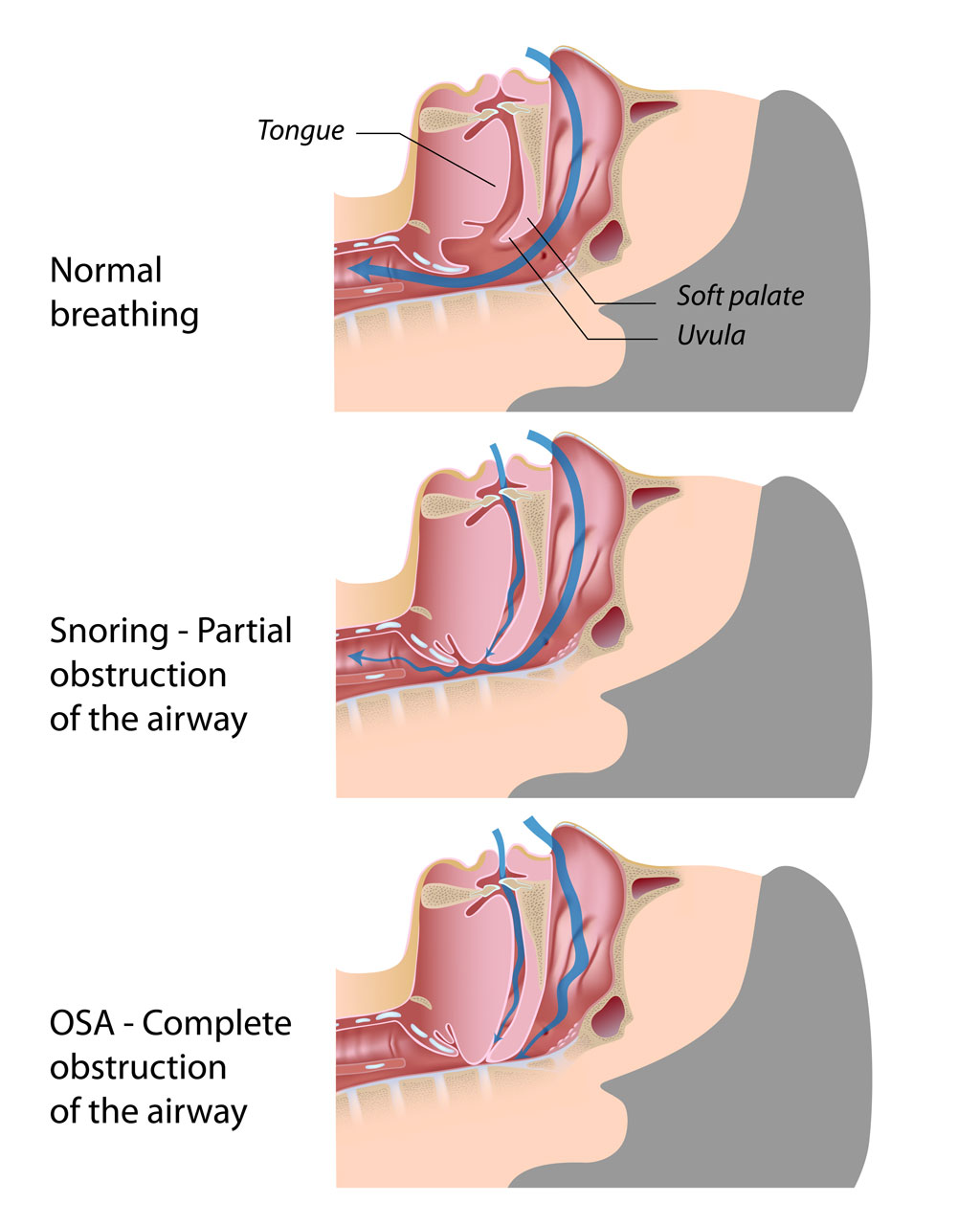Snoring Treatment In Delhi
Snoring is a common condition where a person makes a loud, harsh noise while sleeping due to the vibration of respiratory structures caused by turbulent airflow. Snoring can be caused by a variety of factors and can range from mild to severe. It is important to understand that while occasional snoring is often harmless, chronic or loud snoring could be a sign of an underlying health condition, such as Obstructive Sleep Apnea (OSA).
Causes of Snoring:Relaxation of Throat Muscles:
When the muscles in the throat relax during sleep, they may partially block the airway. As air moves past these relaxed tissues, it can cause vibrations, leading to the snoring sound. This is the most common cause of snoring.
Nasal Issues:Blocked or congested nasal airways can make breathing through the nose difficult, forcing a person to breathe through their mouth. This can increase the chances of snoring.
Common nasal issues include:
- Nasal congestion (due to allergies or colds)
- Deviated septum (a misalignment of the nasal passage)
- Nasal polyps (non-cancerous growths inside the nose)
Excess weight, particularly around the neck, can contribute to snoring. Fat deposits in the neck can put pressure on the airway, causing it to become partially blocked.
Alcohol and Sedatives:Alcohol, sedatives, or tranquilizers can relax the muscles in the throat, increasing the likelihood of airway obstruction and snoring.
Sleep Position:Sleeping on your back can cause the tongue and soft tissues in the throat to collapse backward, narrowing the airway and leading to snoring. This is less likely to happen when sleeping on your side.
Aging:As people age, the throat muscles become weaker, and the airway becomes more prone to collapse during sleep. This can lead to an increase in snoring.
Mouth Anatomy:The size and shape of a person’s tongue, uvula (the soft tissue hanging from the roof of the mouth), and palate can influence snoring. A large tongue or elongated uvula can obstruct airflow during sleep, leading to snoring.
Sleep Deprivation:Not getting enough sleep can cause the throat muscles to relax more than usual, increasing the chances of snoring.
Gender:Men are more likely to snore than women due to differences in the anatomy of the upper airway. Men typically have narrower air passages in the throat.
Smoking:Smoking irritates the lining of the nasal cavity and throat, which can lead to inflammation and increased likelihood of snoring.


Types of Snoring:
Simple Snoring:This is the most common type, usually caused by factors such as sleep position, nasal congestion, or alcohol use. It tends to be intermittent and does not affect overall health.
Obstructive Sleep Apnea (OSA) Snoring:
In this case, snoring is accompanied by frequent pauses in breathing, choking, or gasping for air. This type of snoring can indicate a more serious condition, such as OSA, where the airway is repeatedly blocked during sleep, leading to oxygen deprivation.
Symptoms of Snoring:- * Loud, consistent snoring: Often disruptive to the bed partner.
- * Interrupted sleep: Waking up frequently due to the noise.
- * Daytime fatigue: Snoring, especially if linked to sleep apnea, can cause a lack of restful sleep, leading to daytime drowsiness and lack of concentration.
- * Choking or gasping during sleep: A sign that the airway is being blocked intermittently (possible sleep apnea).
Risk Factors for Snoring:
- * Age: As mentioned, the risk of snoring increases with age, particularly after the age of 50.
- * Obesity: Extra weight can contribute to narrowing of the airway.
- * Gender: Men are more likely to snore than women, though women’s risk increases after menopause.
- * Family history: Genetics can play a role in the development of snoring, especially if sleep apnea runs in the family.
- * Pregnancy: Hormonal changes during pregnancy can lead to snoring due to nasal congestion and relaxation of throat muscles.
How to Manage and Treat Snoring:
- Maintain a healthy weight: Losing excess weight can reduce the amount of fat around the neck and decrease snoring.
- Avoid alcohol and sedatives: These substances relax throat muscles, making snoring worse. Avoiding them, especially in the hours before sleep, can help.
- Sleep on your side: Sleeping on your back can exacerbate snoring, as it allows the tongue and soft tissues to collapse backward. Sleeping on your side may reduce snoring.
- Establish a regular sleep routine: Going to bed at the same time each night and getting enough sleep can reduce snoring, as sleep deprivation can relax throat muscles more than usual.

Nasal Treatments:-
- * Uvulopalatopharyngoplasty (UPPP): Removal of excess tissue from the throat to widen the airway.
- * Tonsillectomy: Removal of enlarged tonsils, if they are contributing to airway obstruction.
- * Genioglossus advancement (GA): Surgery to reposition the tongue muscle to prevent airway collapse.
- * Nasal surgery: To correct structural issues like a deviated septum or nasal polyps that contribute to snoring.
When to See a Doctor:
If snoring is loud and frequent, and especially if it's accompanied by choking or gasping, it could indicate a more serious issue such as Obstructive Sleep Apnea (OSA). Symptoms of sleep apnea include:
Conclusion:
While occasional snoring may not be a cause for concern, loud, persistent snoring or snoring accompanied by other symptoms such as choking or daytime sleepiness should not be ignored. If untreated, snoring—especially when linked to sleep apnea—can contribute to various health problems, including cardiovascular issues, high blood pressure, and diabetes. Addressing the underlying causes of snoring can significantly improve sleep quality and overall health.

